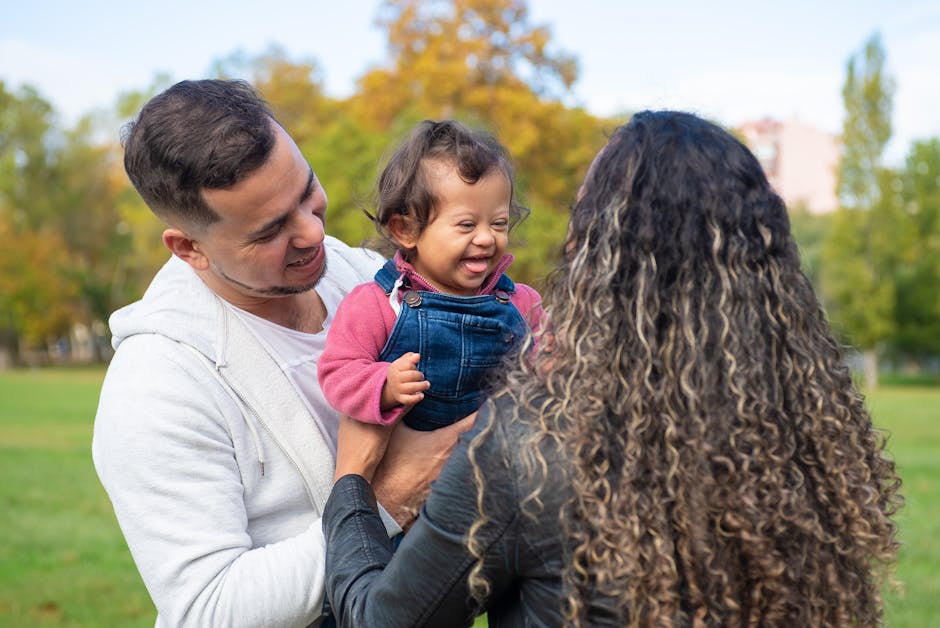Families are not isolated entities. They are embedded within a larger social fabric a community that significantly influences their well-being and development. This intricate interplay between family life and community engagement is a complex tapestry woven with threads of support, resources, and shared experiences. Understanding the role of community in parenting is crucial for fostering thriving and resilient families.
A key function of community in family life is the provision of a supportive network. This isn’t just about tangible assistance, although financial aid and practical help are certainly important. Rather, it encompasses a more profound sense of belonging and shared responsibility. When families feel connected to their community, they experience a sense of security and encouragement. Neighbours offering childcare while parents attend a meeting, shared meals and activities fostering social bonds, or even just a friendly face on the street can make a substantial difference in a family’s ability to cope with stressors. This sense of collective responsibility fosters a feeling of safety and trust within the community, which in turn benefits individual families.
A strong community facilitates access to crucial resources. Childcare centers, libraries, after-school programs, and community gardens are just some examples. These provisions provide opportunities for children’s development, educational advancement, and overall well-being. Parents, too, benefit from these community resources, having access to support groups, workshops on parenting, and access to local expertise on various topics vital for family life. This availability of resources strengthens the family unit, empowering parents and providing opportunities for individual growth and development. Beyond these formal structures, informal networks, such as mentoring programs or neighborhood playgroups, also play a vital role.
Furthermore, a vital part of the community’s role in family life is the establishment of a sense of shared values and norms. A community where respect, kindness, and cooperation are emphasized subtly shapes the upbringing of children within that environment. These shared values influence the kind of interactions children experience, shaping their moral compass and social skills. A community that fosters strong intergenerational bonds can create a culture of support and mentorship, guiding families through various stages of life and imparting valuable lessons.
The influence of community extends beyond its explicit provisions; it permeates the very fabric of family identity. For instance, the cultural nuances of a community can profoundly shape a family’s traditions, customs, and beliefs. Religious practices, cultural festivals, and shared celebrations all contribute to the sense of belonging and continuity within a family, linking it to its heritage and surrounding community. This cultural grounding provides a sense of identity and continuity for families, allowing them to connect with their heritage and instill those values within their children.
However, the role of community isn’t solely positive. Negative community influences can also significantly impact families. Exposure to crime, violence, or substance abuse can create stressful environments that negatively affect parenting strategies and family dynamics. Neighborhoods characterized by social isolation or lack of resources can exacerbate existing family challenges, impacting the ability of families to thrive.
Consequently, community involvement becomes crucial for mitigating these negative effects. Community leaders, organizations, and agencies must actively work to foster environments that support families, providing resources and opportunities for positive development. Interventions that promote conflict resolution, offer job training, and address substance abuse can reduce the impact of negative influences on family life. Equally important is addressing systemic inequalities, ensuring that all families, irrespective of their background or circumstances, have access to the support and resources they need to flourish.
The role of community in family life transcends mere provision of resources. A strong community creates a sense of belonging and fosters a collective sense of responsibility towards each other. It also establishes a shared moral compass, guiding children towards a positive social development. These shared values profoundly influence family life, making it a nurturing environment for children to thrive.
Considering how communities shape parenting styles, there is a significant interaction between the values and norms of the community and the methods parents employ. Communities that prioritize collective well-being often encourage collaborative parenting approaches, where neighbours and community members share the responsibility for raising children. Conversely, communities focused on individual achievement may place more emphasis on stringent discipline and stricter parenting techniques.
Examining the evolving landscape of family structures, the role of community in supporting diverse families is paramount. Single-parent families, blended families, and families with children with special needs often face unique challenges. A supportive community can provide crucial resources, such as support groups, respite care, and access to specialized services that address these specific needs. Understanding these diverse family structures and tailoring community support programs accordingly is essential for fostering inclusivity and ensuring that all families can thrive.
In conclusion, the interplay between family life and community is intricate and multifaceted. Communities provide a crucial support system, access to vital resources, and a shared framework of values. They can nurture resilience and foster thriving environments, but also magnify negative influences. To ensure the well-being of families, it is essential to acknowledge this complex relationship and actively create communities that offer comprehensive support, resources, and a profound sense of belonging to all families, recognizing the diverse needs and challenges they face. A strong community is not just a collection of individuals; it’s a dynamic system that significantly impacts the quality of life within families, ultimately shaping the future of generations.
